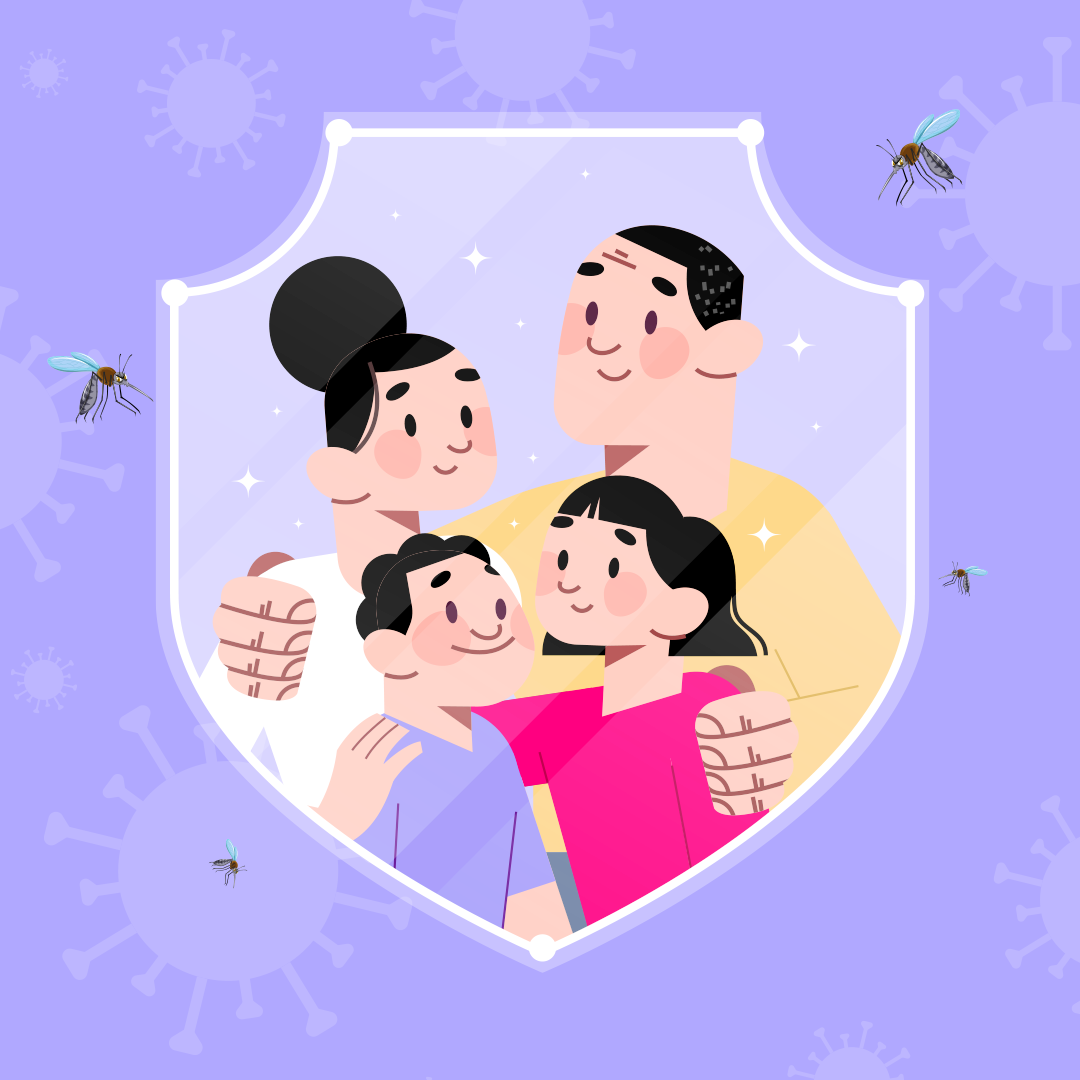How to Protect Your Family from Malaria During the Monsoon Season?

The monsoon season brings much-needed respite from the scorching summer heat; it also transforms the landscape around us with lush greenery and cooler temperatures. However, it also ushers in heightened health risks.
The heavy rains often leave behind puddles and stagnant water, creating a perfect breeding ground for mosquitos. Among these, the Anopheles mosquito, the main culprit behind malaria transmission, is particularly dangerous.
Malaria is a serious disease which can cause severe health complications if not addressed promptly. Protecting your family from malaria requires recognizing the early symptoms and seeking treatment. By taking preventive measures, you can shield your loved ones from this life-threatening illness during the vulnerable monsoon months.
Escalating Malaria Dangers in the Monsoon Season
The monsoon season creates an ideal environment for mosquitos to thrive. The increased mosquito activity during the monsoon season heightens the risk of malaria, especially in areas where malaria is already prevalent.
Understanding the symptoms of malaria is imperative for prompt identification and treatment. High fever, chills, sweating, headache, nausea, and exhaustion are typical symptoms of malaria. Since the symptoms are very similar to other common illnesses, it is important to visit the doctor if you suspect malaria. If left untreated, it can quickly escalate from minor symptoms to major side effects like anaemia, organ failure, and even death. Therefore, it is crucial to identify the early signs and seek malaria treatment as soon as you can.
Furthermore, it is critical to understand that although malaria is not contagious and cannot directly spread from one person to another, mosquito bites can greatly increase the risk of transmission. This makes it crucial to focus on prevention strategies and manage the mosquito population in and around your home.
Practical Tips to Protect Your Family
A multi-faceted approach is essential to safeguard your family from malaria during the monsoon season. The following are some practical tips that can assist you in lowering the risk of malaria during the monsoon season.
1. Eliminate breeding grounds
It is paramount to consistently scan your surroundings for any stagnant water and dispose of it. Empty any containers, cover storage tanks and ensure that your gutters and drains are clear. It is essential to be thorough as mosquitos can breed in the smallest amount of water.
2. Use mosquito repellents
Mosquitoes are most active during the evenings and at night. During these times, you can apply oils, lotions, or sprays that repel mosquitos from your skin.
If you prefer to steer clear of chemicals, you can use natural remedies such as citronella or eucalyptus oil.
3. Install mosquito nets and screens
To keep mosquitoes out of your house, make sure that all the windows and doors are covered with screens. Additionally, you can use mosquito nets over mattresses, especially for children and older people who are more susceptible to the illness.
4. Wear protective clothing
Wearing long-sleeved shirts, pants, and socks should be encouraged especially in the evenings. Also, light-coloured clothing is preferable as it deters insects.
Essential Strategies for Malaria Prevention and Treatment
Prevention of malaria is better than treatment. While avoiding mosquito bites should be the main priority, it is important to be informed about the malaria vaccine, which is accessible in some areas. It can provide additional protection, especially to young children and individuals who are travelling to high-risk areas.
If a family member exhibits malaria symptoms, get medical attention right away. Anti-malarial medications work when taken in the early stages of illness. Always take the full course of medications even if the symptoms subside.
Conclusion
Shielding your family from malaria requires vigilance and proactive measures. Understanding what causes malaria, recognizing the symptoms, and implementing preventive strategies can lower the risk of malaria transmission.
If you need to find the perfect doctor for diagnosis and treatment, taking the help of the Bharosa.life portal is the right way to go. You can get honest opinions from real-life patients and get the best healthcare you need.
Contact us to know more!
